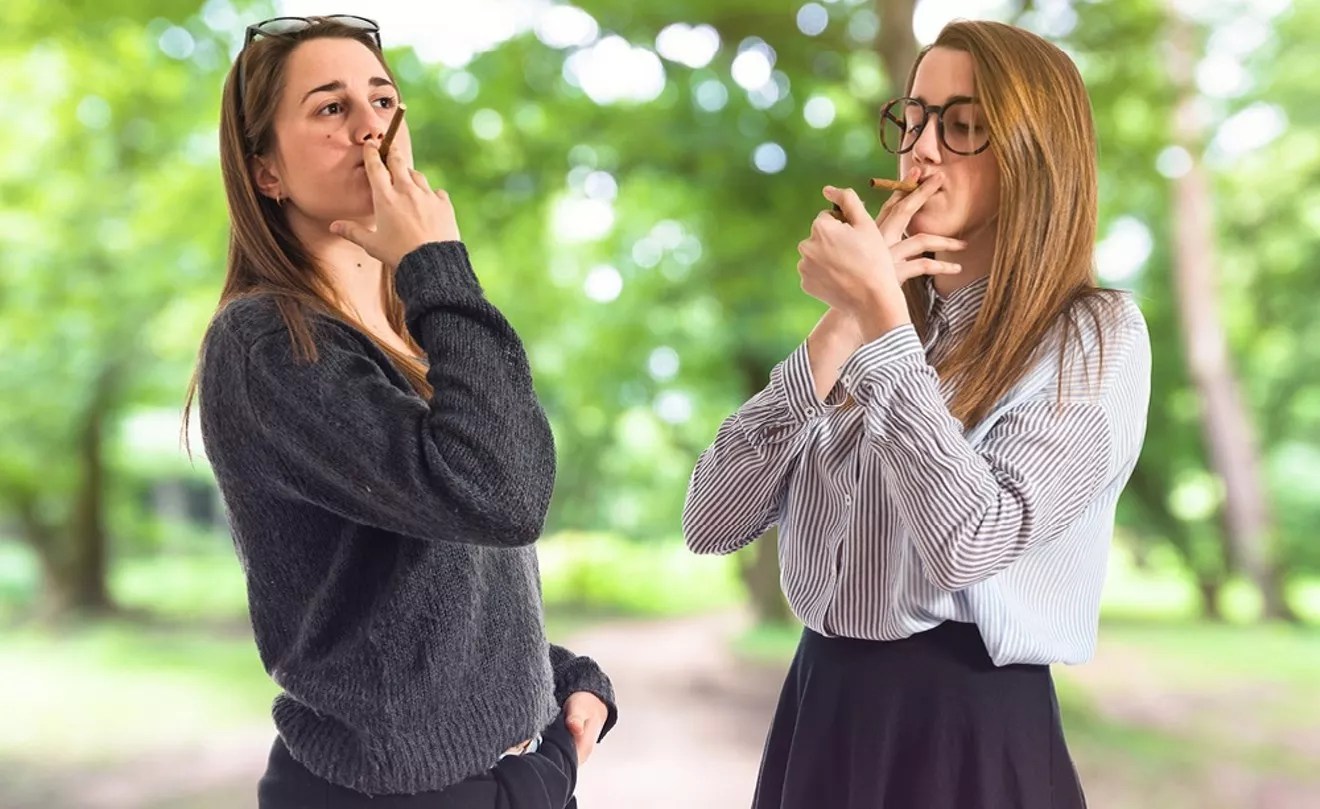
Shutterstock.com/Luis Molinero

Audio By Carbonatix
In 2018, researchers at the University of Colorado Boulder set out for a real glimpse into how cannabis legalization affects usage rates. Over four years later, they’re sharing the results.
Researchers wanted to find out if people really use cannabis more after a state legalizes it, so they collected information on cannabis use from a group of people whose genes and backgrounds are essentially identical: twins.
The CU research team partnered with the University of Minnesota’s Center for Twin Family Research so the study could compile sets of twins who live in Colorado, where recreational cannabis sales have been legal since 2014, and those who live in Minnesota, where recreational pot is still banned. All participants have been involved in CU or UM studies since they were children, according to researchers, providing the study with extended behavioral information.
“This provides just about the best control for all the background things that you can think of,” supervising researcher and retired geneticist John Hewitt says.
Participants were asked how frequently they used cannabis before and after 2014, with results showing that all residents residing in a state where cannabis is legal used it 24 percent more often than those living in a state where it is not. When comparing one identical twin who lived in a state where cannabis is illegal and one living in a state where it is legal, the twin living in the legal marijuana state used it 20 percent more often.
“What we decided to do is to collaborate with our colleagues in Minnesota, [which] wasn’t legalizing recreational use of marijuana but had very similar studies of twins and families over a long period of time, as we did,” Hewitt recalls. “So we both, Minnesota and Colorado, had information about individuals’ self-reported use of substances as adolescents. It provided a natural experiment to us to compare how things might change in Colorado when cannabis was legalized compared to a state in which that didn’t happen.”
The study also found that legalization did not lead to people using more cannabis who weren’t already using it before.
“I guess for people who are maybe fearful of legalization, it might show it’s not causing [people to start using cannabis]. People who wanted to use cannabis were already using cannabis and still use cannabis,” study co-author Stephanie Zellers, who conceptualized the research goal, says.
Zellers, Hewitt and a handful of researchers studied over 3,400 adult twins, with 707 of those being a pair where only one of the two twins was participating. Out of 1,357 complete pairs of twins, 459 pairs both lived in a legal state, 691 pairs both lived in an illegal state, and 207 twin pairs lived separately in illegal and legal states. Of those 207 pairs of twins that were separated, 111 were identical.
The “pre-legalization data” was collected between 1996 and 2013, and the data after legalization was collected between 2018 and 2021. The data was collected through a series of interviews and surveys that asked about behavior and how often participants used cannabis.
Participants were asked how frequently they used cannabis before and after 2014, when cannabis sales were legalized in Colorado. Before 2014, the research found that there was not much of a difference in usage between states – but after 2014, usage increased in states where cannabis was legal.
“There have been a lot of studies conducted to look at rates of use or other important outcomes comparing states. A lot of those studies can’t really rule out alternatives and say ‘This policy caused something,'” Zellers explains.
The CU study rules out factors that could affect results by using twins that have been studied for years as participants, according to Zellers, as the twins grew up in the same household and share the same genes. Because all of the twins were involved in other studies since adolescence, Zellers was able to control and account for other differences or behaviors that they may have, to make sure the only significant difference was the state in which they resided.
“There’s not really, like, a gene for marijuana use. … Each person might have a vulnerability to how much, but it tends to be pretty broad, so there’s not necessarily genes that predispose you to use alcohol or marijuana. It’s kind of a general influence. One way that our genes might influence our substance use is how impulsive you are or how risk-averse you are,” Zellers notes.
Zellers, who’s lived in both Colorado and Minnesota, doesn’t think the results are surprising: “I think this just kind of like confirms what people thought. When something is legal, it’s easier to get, and so people are going to do something more when it’s easier,” she says.